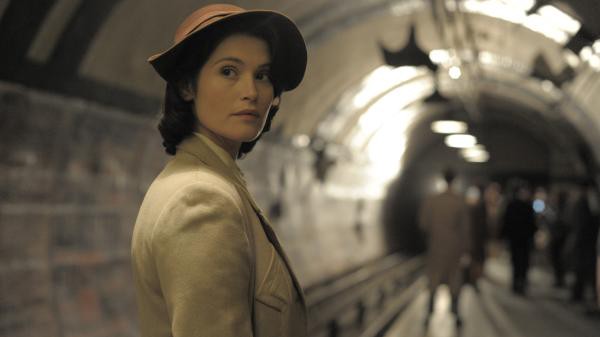In her native Denmark, Lone Scherfig began her career directing award-winning commercials and television dramas. Her feature film credits include “An Education,” “One Day,” and “The Riot Club.”
“Their Finest” will premiere at the 2017 Sundance Film Festival on January 22.
W&H: Describe the film for us in your own words.
LS: A declaration of love for the British scriptwriters of WWII, scriptwriting, and screwball comedy.
W&H: What drew you to this story?
LS: The script is very dense, fun, and moving. It’s about films when they were more important that they’ve ever been — during the London blitz — and about characters I wish existed in real life so I could stay in touch with them.
W&H: What do you want people to think about when they are leaving the theater?
LS: Despite the dramatic setting, we all wanted the film to be full of hope. The story shows how crucial a good script is for a film. And the last sequence is about how great it is to see films in a cinema.
W&H: What was the biggest challenge in making the film?
LS: As it’s a film about films, the craftsmanship had to be very varied with eloquent film language and an effortless blend of the many types of films inside the film.
Having done a lot of quite low key, minimalist work, this time I truly enjoyed working with a script where it suits the story to play with the full cinematic orchestra.
W&H: How did you get your film funded? Share some insights into how you got the film made.
LS: It’s primarily BBC Films, Pinewood, and Lionsgate UKm with lots of support from Wales, where people brought very different types of input and experience to the film and seemed genuinely happy with how it turned out.
W&H: What does it mean for you to have your film play at Sundance?
LS: After the screening of “An Education” eight years ago which meant so much to the film and all of us, I have felt grateful towards Sundance. It’s a huge privilege to come back, especially with a film that has already screened in Toronto and in London. Sundance can be hugely influential. For instance, Damian Chazelle, who won for “Whiplash” when I was on the U.S. jury in 2014, has had an exploding career — and deserves it.
W&H: What’s the best and worst advice you’ve received?
LS: Best advice: It’s good to chose your battles and find your voice as a filmmaker early if you can. Find someone you trust to collaborate with. Read books. Learn how to appreciate the individual crafts and artistry on the film crew, especially writers and actors.
Worst advice: I find it hard to forgive people who come up to me in stressful situations patting my shoulders saying “just be yourself.”
W&H: What advice do you have for other female directors?
LS: Define and address big problems as early as possible. Ask for help and listen to people, but don’t necessarily involve others in all of your own thoughts until you have made your conclusions.
Be well-prepared, clear, and know what you want. Make everyone work on the same film. Be professional. Be kind.
W&H: Name your favorite woman-directed film and why.
LS: My mind always goes back to Margarethe von Trotta’s “The German Sisters,” or as it’s also known “Marianne & Juliane,” a film about the Baader-Meinhof era. One sister is a journalist, the other a terrorist.
The film is intelligent, political, heartbreaking, and beautifully made.
W&H: Have you seen opportunities for women filmmakers increase over the last year due to the increased attention paid to the issue? If someone asked you what you thought needed to be done to get women more opportunities to direct, what would be your answer?
LS: I occasionally teach and try to stress how important it is for young directors to conquer all fear of technical issues. Later, you can always find people to make up for your shortcomings, but when you’re starting out you have to learn, and care about, the film language and technique so the lower budgets feel like an artistic challenge, and not just major obstacles.







